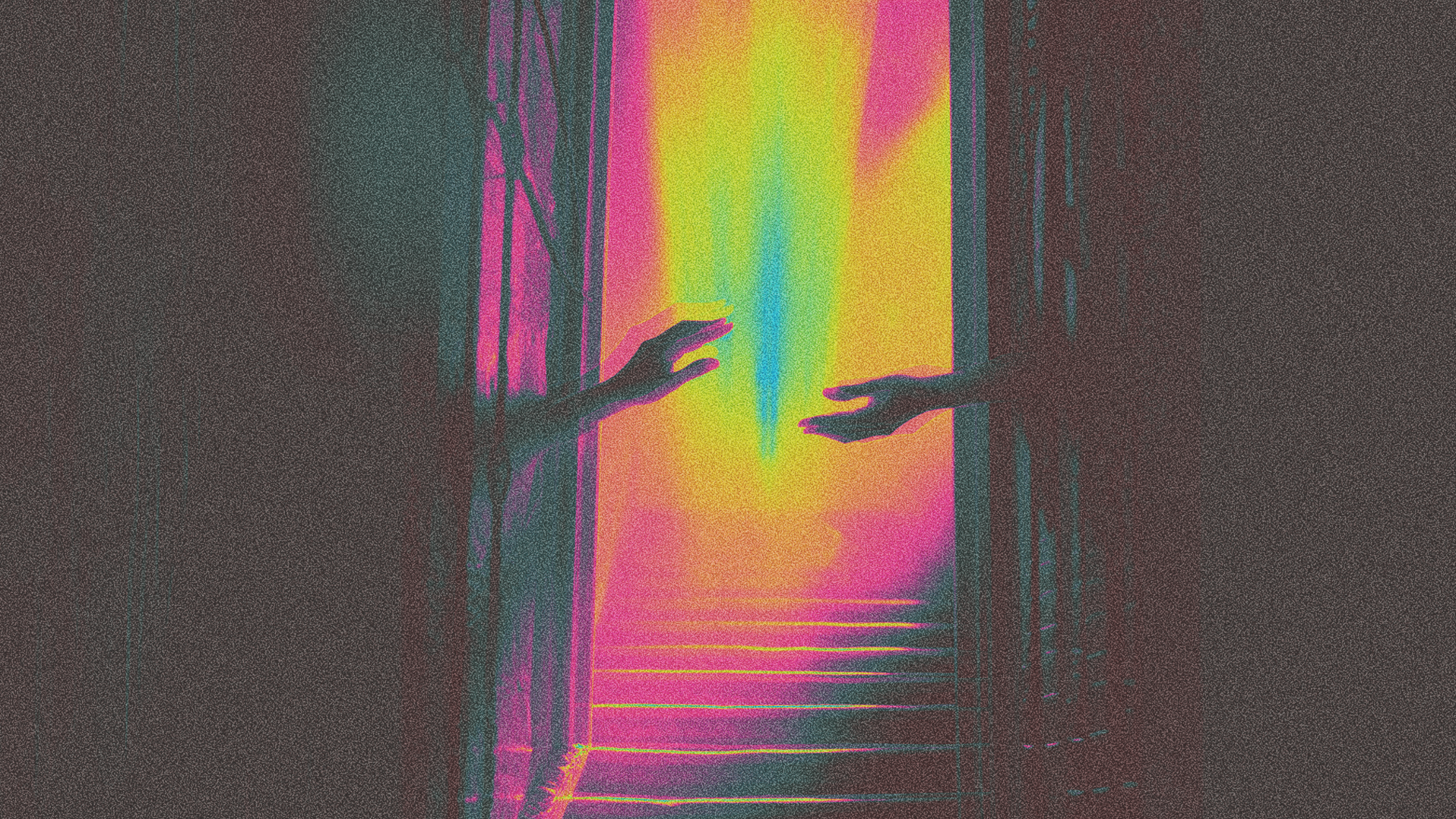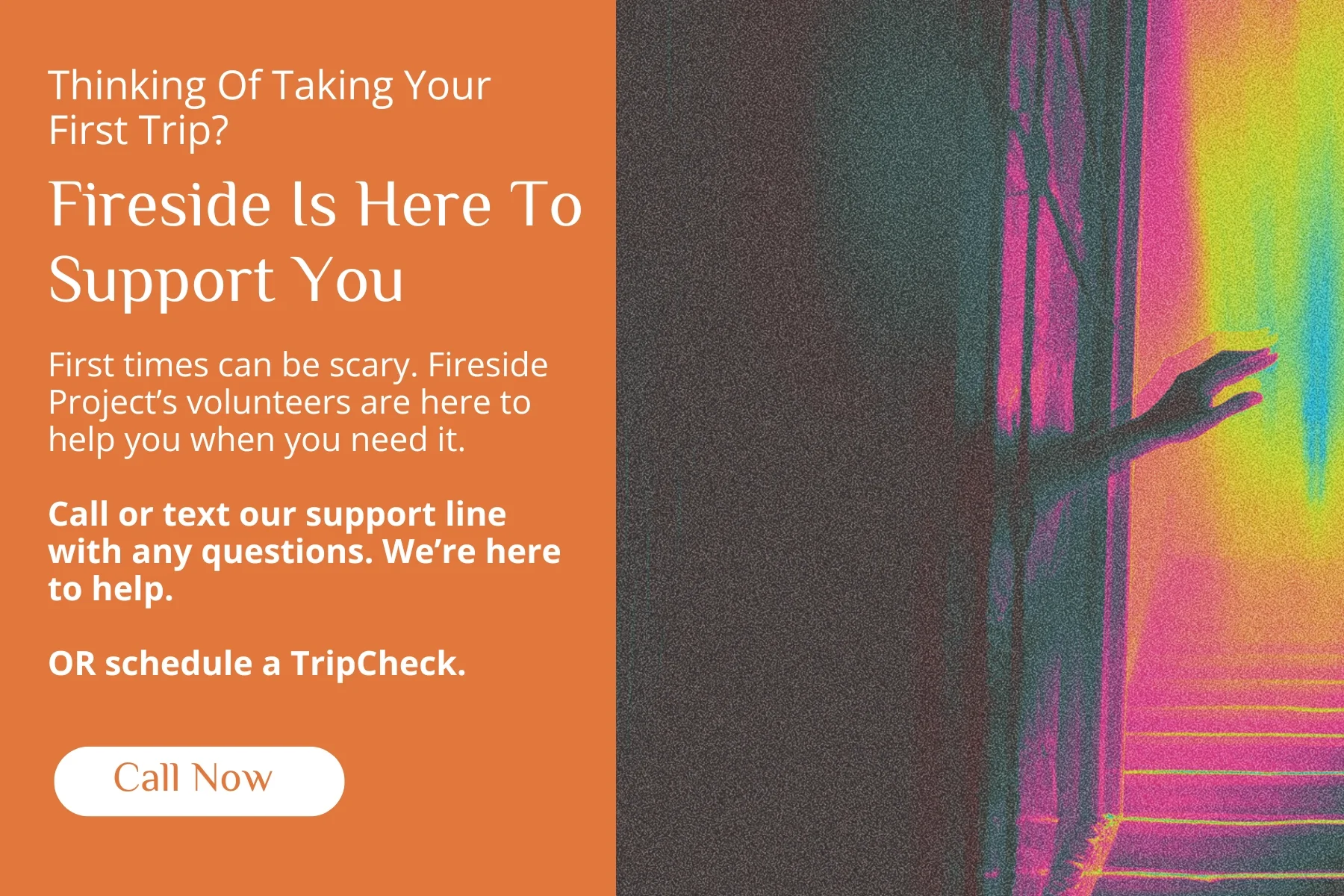Supporting First-Time Trippers: What Fireside Project Has Learned From 2600+ Calls
At Fireside Project, we’ve received over 26,000 calls and texts to our free Psychedelic Hotline. While every call is unique, one trend stands out: around 10% of our contacts come from people who are tripping for the very first time.
Whether someone is preparing to take psychedelics, actively in the middle of a journey, or processing the aftermath, first-time experiences tend to be marked by intense curiosity, deep emotional exploration and, often, a lot of questions. By offering free, confidential, peer support during these pivotal moments, Fireside helps fill a critical gap in psychedelic harm reduction.
First-Time Tripping Comes With Big Questions
For those unfamiliar with psychedelic states, the onset of a journey can spark a wide range of reactions, from awe and wonder to anxiety and confusion. Fireside Project receives calls from first-time users wondering:
“Is what I’m feeling normal?”
“How long will this last?”
“What do I do if I feel overwhelmed?”
“Am I stuck like this?”
These questions are not cause for alarm—they’re a natural part of stepping into unfamiliar psychological territory. But without real-time, nonjudgmental support, these questions can spiral into fear or panic, increasing the risk of a difficult experience.
That’s where our volunteers come in. We provide grounding, reassurance, and harm-reduction education to help first-time users find their footing and move through their experience with a greater sense of agency.
First Times Aren’t Just About First Substances
While many callers are navigating their very first trip ever, we also hear from individuals who have used psychedelics before and are now trying a new substance for the first time. Even experienced users can feel uncertain when exploring unfamiliar territory, especially with longer or more intense medicines like LSD or DMT.
These moments are an opportunity for preventive support, helping people feel emotionally prepared, informed about safety considerations, and empowered to set intentions.
Calls from first-time users often center on normalization and reassurance. For many, simply knowing they’re not alone is the most powerful intervention.
A Harm Reduction Opportunity
The data tells us something important: First-time trippers are already reaching out for help. That’s a good thing. It means the psychedelic community is increasingly recognizing the value of support structures, especially ones that are free, anonymous, and not tied to law enforcement or clinical settings.
But it also underscores the need for wider awareness. As psychedelic interest grows, more people are navigating these experiences without adequate preparation or support. Fireside’s model shows what’s possible when we meet people where they are, without judgment.
If you’re a therapist, educator, trip-sitter, or advocate in the psychedelic space, consider sharing resources like the Fireside Project Hotline with people who may benefit. Integration is important, but so is support in the moment.
Building a Culture of Care
At Fireside, we believe that every psychedelic experience, especially the first one, deserves to be met with care, curiosity, and support. Our data confirms what many in the community already know: a little reassurance can go a long way. In a moment where someone feels confused, scared, or just full of questions, one supportive voice can shift the entire trajectory of a journey.
We’re honored to be that voice for thousands of people. And we hope to see continued growth in the ecosystem of services that make first-time psychedelic use safer, gentler, and more meaningful.
Fireside-Certified™ Coaching: Support Before and After the Trip
In addition to real-time peer support, Fireside offers Fireside-Certified™ Psychedelic Coaching, a paid service designed to help people prepare for or integrate after psychedelic experiences. Our trained coaches bring extensive experience in harm reduction, somatic approaches, and peer-led care.
This can be especially beneficial for first-time users looking to:
Clarify their intentions
Build an emotional toolkit
Reflect on and integrate insights afterward



